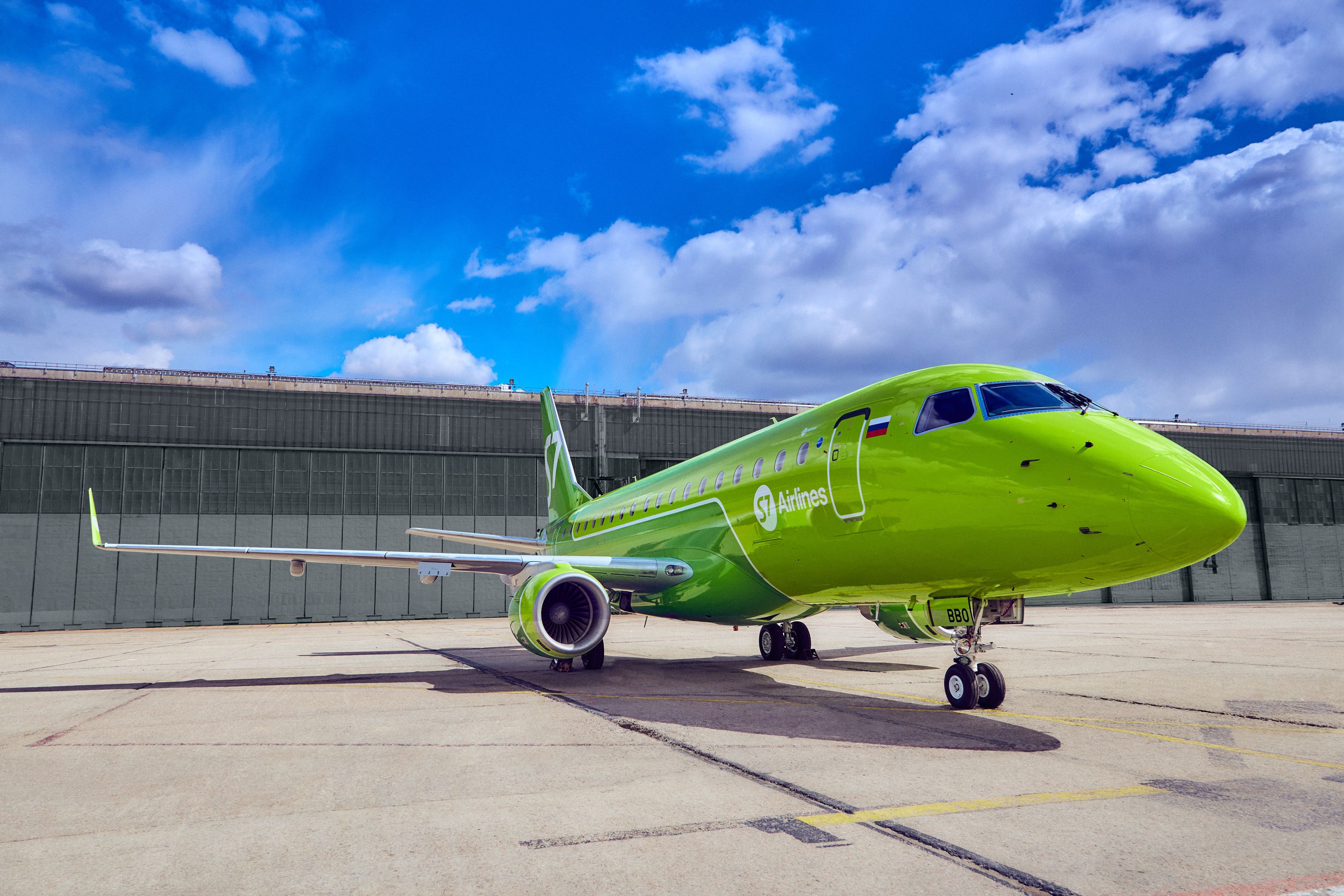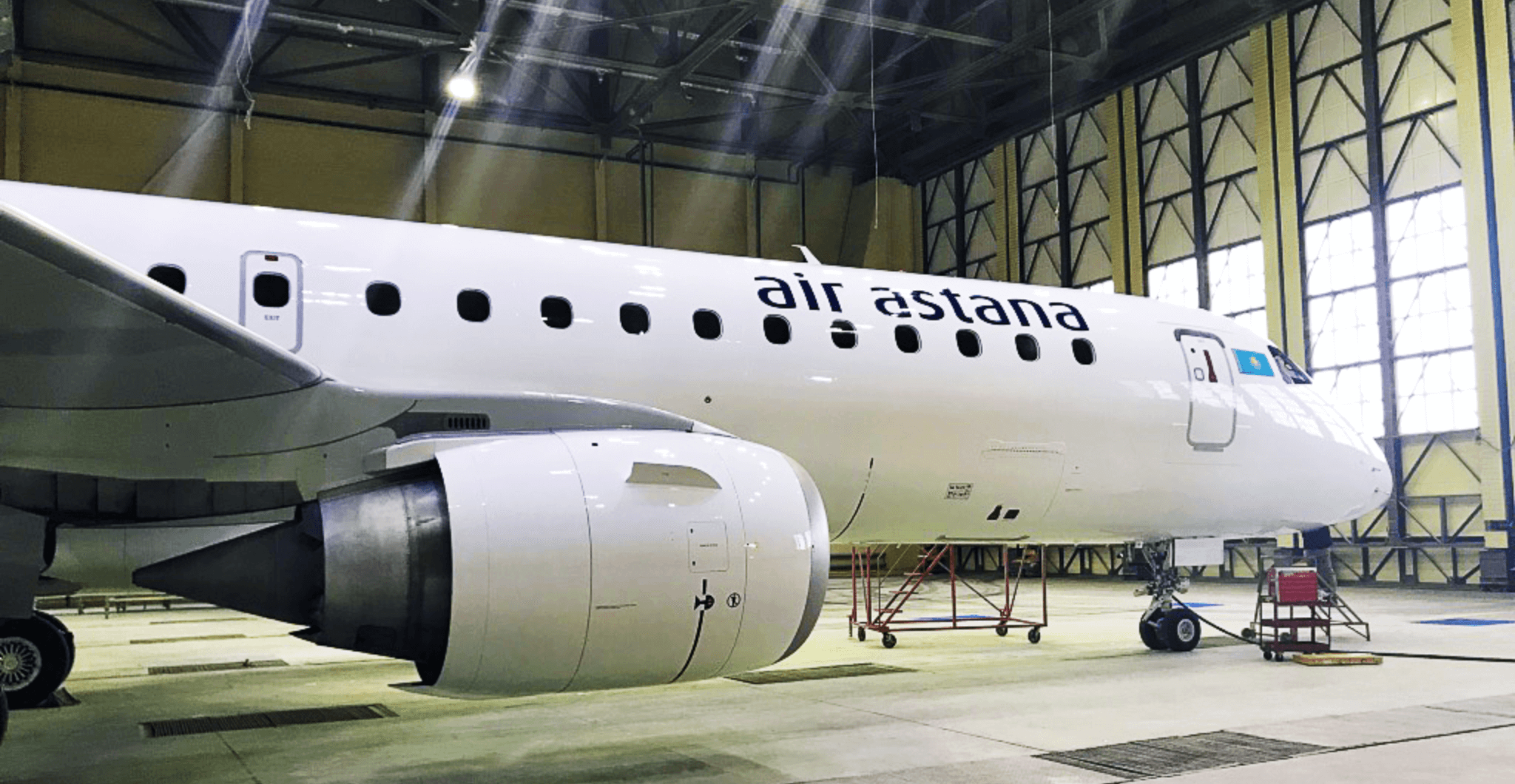Brazilian aircraft manufacturer Embraer has confirmed today that it will join Boeing and Airbus in halting supply of parts and aircraft to Russia.In a statement to Simple Flying, Embraer said,
Embraer is closely monitoring the evolving situation and has been complying, and will continue to comply, with the international sanctions imposed on Russia and certain regions of Ukraine by suspending parts, maintenance and technical support services for customers affected by sanctions.
Embraer aircraft are used by two significant commercial airlines in Russia. S7 Airlines has a fleet of 17 E170s in operation, while Pegas Fly has six of the larger E190s. A number of private and charter operators also use the manufacturer’s business jets, including Sirius-Aero, RusJet and PremierAvia.
Embraer in Russia
Over the past few years, Russia has become an increasingly important market for Embraer. In 2018, the planemaker doubled its market share from the previous year in terms of revenue passenger kilometers (RPK) flown. Although it remains a small fraction of the Russian commercial fleet, the manufacturer’s aircraft presence increased 0.45 percentage points to 0.84% by the end of 2018.
In 2019, Embraer debuted its E195-E2 jet at the national airshow, MAKS. The TechLion attracted plenty of attention at the show, although no orders were secured. To date, no Russian airline has committed to the E2, although neighboring Kazakhstan’s Air Astana has enjoyed great success with its five E190-E2s.
Of the airlines in Russia currently flying Embraer equipment, S7 Airlines is perhaps the most heavily invested in the brand. Just last November, the airline unveiled a new service line for Embraer aircraft, undertaking heat and sound insulation repairs at the shop in Moscow. Located at Domodedovo Airport, the facility specializes in maintenance and repairs of thermal acoustic insulation mats, and is the first of its kind in Russia.
The airline also operates a subsidiary, S7 Technics, which provides MRO services to Embraer aircraft as well as others. This incudes a line maintenance facility at Domodedovo, Sheremetyevo, Tolmachevo, Vladivostok, Yakutsk and Irkutsk. While these stations might keep the E-Jets flying a little longer, the lack of incoming replacement parts will soon see them grind to a halt.
How will Russian aviation survive?
With all three major commercial aircraft manufacturers pulling back from supplying Russia, the aviation industry is now in a slow freefall that will eventually see it grinding down to an almost standstill if nothing changes. The speed at which this happens will depend on the size of the stockpiles left at the airlines, and how far into maintenance cycles the existing aircraft are.
For the time being, domestic flying will be able to continue for as long as there is a supply of parts remaining. International flying, to the increasingly slim list of countries accepting Russian airlines, will be more difficult. That problem will be exacerbated by the withdrawal of SWIFT payment services for many Russian banks.
Longer term, Russia’s airlines will have no choice but to become more self-sufficient if they want to keep flying. With approximately two thirds of the Russian commercial fleet supplied by non-Russian manufacturers, the only way to keep these planes in the air will be to cannibalize the existing fleet.
This will see the Russian fleet slowly shrinking, with planes becoming older and more unreliable as time goes on. It’s a pattern we saw with Iran during the sanction years that will inevitably be played out here too, unless something happens to stop the war and release Russia from its sanctions.


.jpeg)


